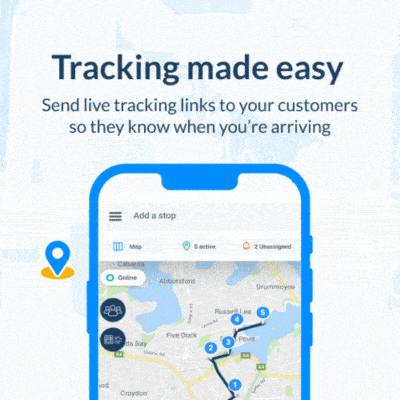Imagine a world where shipping is faster, cheaper, and smarter. That’s the future Flexport claims to be building with generative artificial intelligence (AI).
Ryan Petersen founded the freight forwarding company in 2013, with the goal of bringing modern tech solutions to an archaic trade industry.
In an interview with Freethink, Petersen says they have “built software to integrate with all these parties, reduce the amount of manual work that’s required, and improve the quality quite a bit.”
Flexport’s AI pivot
The supply chain management company is turning a notoriously complex industry on its head.
How? By digitizing mountains of shipping documents and paperwork, to making friendly AI-powered calls to truckers
Flexport also claims to be building the ‘holy grail’ of freight logistics: An AI so advanced, it can answer any logistics question, and be considered an expert in the field.
An end to paperwork
Shipping is notoriously known for its mountains of paperwork.
Invoice, trip sheets, customs forms, delivery schedules, delivery notes, the list is endless. And all these forms arrive in every format available: from PDFs to spreadsheets to faxes (yes, still.)
But Flexport believes it can put an end to that by using large language models (LLMs) to scan, digitize and process data.
While humans are still needed to review the data for errors and gremlins, AI does the heavy lifting. According to Alex Nederlof, Flexport’s director of engineering, documentation “is mind-numbing, uninteresting work that requires no skills and is easy to automate.”
“We use [large language models] to automatically digitize commercial invoices, bills of lading, emails the customer sends us. We can automatically parse it and update our track and trace [system] and our status internally,” says Nederlof.
Flexport AI-powered calls to truckers
Another avenue Flexport wants to tackle is communication with truckers. They play a crucial role in global trade, but communicating with them can be tricky.
They can’t always text when they’re on the road, and call centres come with their own set of problems.
Enter AI-powered robocalls. Nederlof says Flexport’s AI bots are polite, efficient, and customizable. “The bots are always friendly. They’re not in a rush. They’re not on a clock.”
Truckers seem to prefer the AI-powered bots over humans, Nederlof says. He adds that Flexport will be rolling out AI calls for manufacturers, vendors, and other supply chain players in due course.
The ‘holy grail’ of freight forwarding
While digitizing documents and improving comms with truckers is vital, Flexport’s ultimate vision is to build the “holy grail” of freight forwarding.
Picture an AI so advanced, it can answer any logistics question by considering all possible factors.
Customs, routes, trade agreements, regulations. These are just some of the factors the AI will navigate when posed with a question to, say, move production from one country to another.
Flexport’s AI: Final thoughts
While Flexport’s different AI models have been trained on individual sectors (one for customs, one for trade routes, etc) the goal is to eventually combine them into one single ‘knowledge agent.’
While generative AI can’t solve every conceivable problem (yet), it’s definitely making waves in the shipping industry at the moment.
Share this article
About the author
Cheryl has contributed to various international publications, with a fervor for data and technology. She explores the intersection of emerging tech trends with logistics, focusing on how digital innovations are reshaping industries on a global scale. When she's not dissecting the latest developments in AI-driven innovation and digital solutions, Cheryl can be found gaming, kickboxing, or navigating the novel niches of consumer gadgetry.














